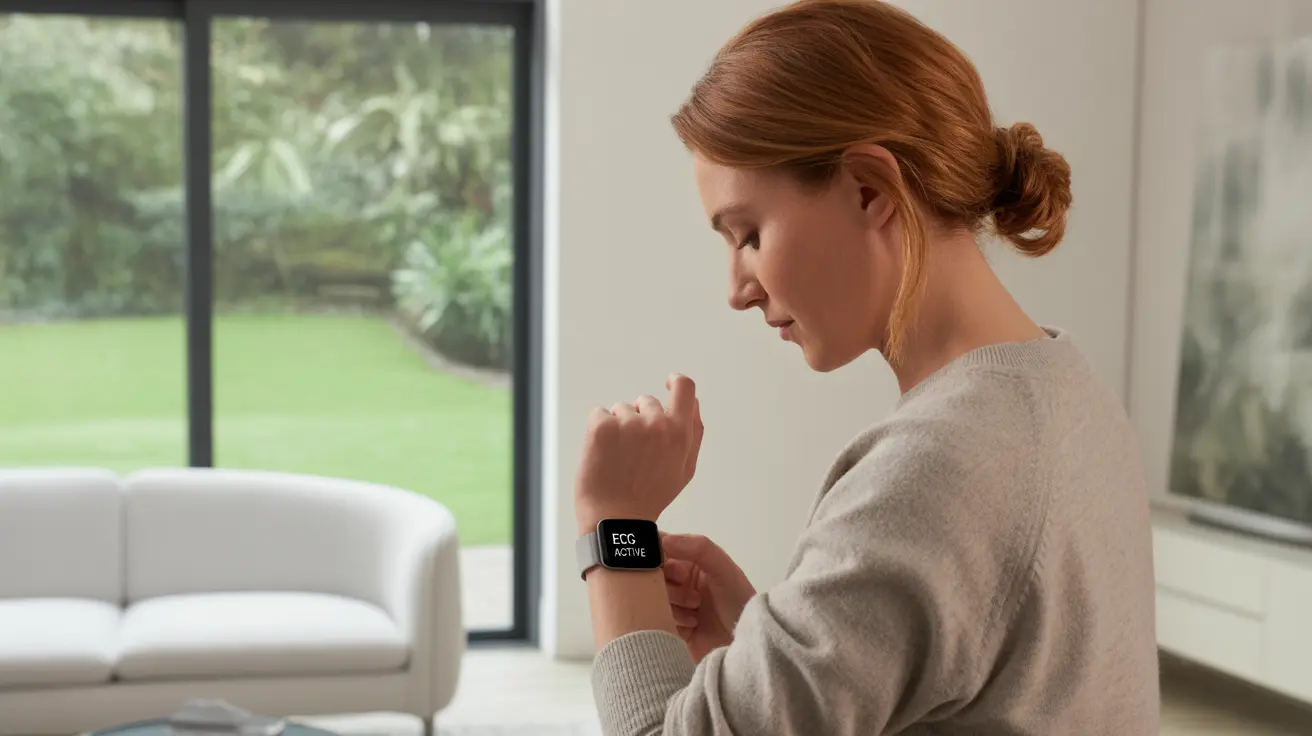The Fitbit Sense represents a significant evolution in wearable health technology, combining advanced health monitoring capabilities with traditional fitness tracking features. This sophisticated smartwatch goes beyond basic activity tracking to offer a complete picture of your physical and mental well-being through its array of innovative sensors and features.
In this comprehensive review, we'll explore the Fitbit Sense's key capabilities, from its FDA-cleared ECG monitoring to its stress management tools, helping you understand how this device can enhance your health journey.
Advanced Health Monitoring Features
ECG and Heart Health Tracking
The Fitbit Sense includes an FDA-cleared ECG (electrocardiogram) app that can detect atrial fibrillation (AFib), a serious heart rhythm irregularity. Users can take a reading by placing their fingers on the watch's corners for 30 seconds, receiving results that can be shared with healthcare providers. The device also continuously monitors heart rate variability and resting heart rate to provide insights into overall cardiovascular health.
Stress Management and EDA Scanning
One of the Sense's standout features is its electrodermal activity (EDA) sensor, which measures small electrical changes in your skin's sweat level to track your body's response to stress. The device provides a Stress Management Score and guided mindfulness sessions to help users understand and manage their stress levels effectively.
Sleep Analysis and Recovery
The Fitbit Sense employs advanced sleep tracking technology to monitor various sleep stages, including light, deep, and REM sleep. The device analyzes your sleep patterns, breathing rate, and heart rate variability during rest to generate a detailed Sleep Score, offering actionable insights for improving sleep quality.
Fitness and Activity Tracking
Workout Monitoring and GPS
With built-in GPS and 20+ exercise modes, the Sense accurately tracks various activities from running and cycling to swimming. The device provides real-time pace and distance information during outdoor workouts, while also measuring active zone minutes, helping users optimize their training intensity.
Activity Stats and Goals
The Sense tracks daily steps, calories burned, and floors climbed, presenting this data through an intuitive interface. Users can set personalized activity goals and receive reminders to move throughout the day, promoting consistent physical activity.
Smart Features and Connectivity
Beyond health tracking, the Fitbit Sense offers comprehensive smart features including smartphone notifications, contactless payments through Fitbit Pay, and voice assistant support. The device is compatible with both iOS and Android platforms, offering a seamless connection to the Fitbit app for detailed health and fitness insights.
Frequently Asked Questions
How accurate is the Fitbit Sense's ECG feature for detecting heart rhythm irregularities like atrial fibrillation?
The Fitbit Sense's ECG feature has received FDA clearance for detecting AFib with accuracy comparable to clinical devices. While not a replacement for medical-grade equipment, it provides reliable preliminary screening that can alert users to potential heart rhythm irregularities warranting professional medical attention.
Can the Fitbit Sense reliably track different stages of sleep, and how precise is its sleep quality data?
The Fitbit Sense uses a combination of heart rate, movement, and breathing rate data to track sleep stages with good reliability. While not as precise as clinical sleep studies, its sleep tracking provides valuable insights into sleep patterns and quality, helping users identify trends and areas for improvement.
How does the Fitbit Sense measure and help manage stress using electrodermal activity (EDA) sensors?
The EDA sensor measures minute changes in skin conductance that indicate stress responses. During an EDA scan, users place their palm over the watch face for 2 minutes while remaining still. The device then provides a stress management score and recommends appropriate stress-reduction activities based on the readings.
What types of workouts and fitness activities can the Fitbit Sense track, and how effective is its GPS for outdoor exercise?
The Fitbit Sense can track over 20 different exercise modes, including running, cycling, swimming, and strength training. Its built-in GPS provides accurate pace, distance, and route tracking for outdoor activities, with battery life sufficient for most extended workout sessions.
Is the Fitbit Sense compatible with both iPhone and Android devices, and what smart features does it support beyond health tracking?
The Fitbit Sense is fully compatible with both iOS and Android devices. Beyond health tracking, it supports smartphone notifications, music control, contactless payments, voice assistants (Amazon Alexa and Google Assistant), and third-party app integration through the Fitbit App Gallery.




